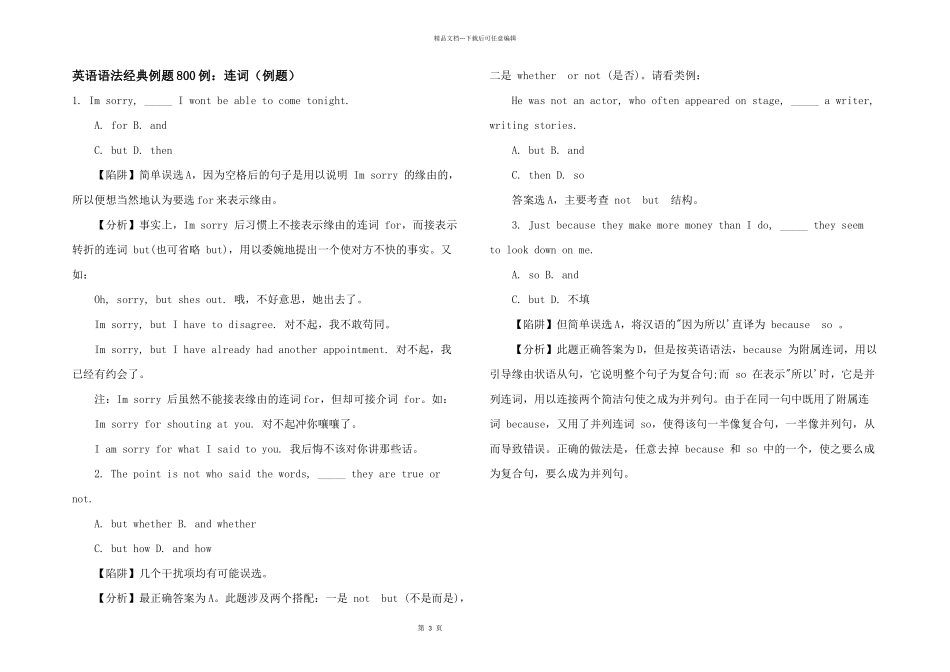第 3 页精品文档---下载后可任意编辑英语语法经典例题 800 例:连词(例题)1. Im sorry, _____ I wont be able to come tonight. A. for B. and C. but D. then 【陷阱】简单误选 A,因为空格后的句子是用以说明 Im sorry 的缘由的,所以便想当然地认为要选 for 来表示缘由。 【分析】事实上,Im sorry 后习惯上不接表示缘由的连词 for,而接表示转折的连词 but(也可省略 but),用以委婉地提出一个使对方不快的事实。又如: Oh, sorry, but shes out. 哦,不好意思,她出去了。 Im sorry, but I have to disagree. 对不起,我不敢苟同。 Im sorry, but I have already had another appointment. 对不起,我已经有约会了。 注:Im sorry 后虽然不能接表缘由的连词 for,但却可接介词 for。如: Im sorry for shouting at you. 对不起冲你嚷嚷了。 I am sorry for what I said to you. 我后悔不该对你讲那些话。 2. The point is not who said the words, _____ they are true or not. A. but whether B. and whether C. but how D. and how 【陷阱】几个干扰项均有可能误选。 【分析】最正确答案为 A。此题涉及两个搭配:一是 not but (不是而是),二是 whether or not (是否)。请看类例: He was not an actor, who often appeared on stage, _____ a writer, writing stories. A. but B. and C. then D. so 答案选 A,主要考查 not but 结构。 3. Just because they make more money than I do, _____ they seem to look down on me. A. so B. and C. but D. 不填 【陷阱】但简单误选 A,将汉语的"因为所以'直译为 because so 。 【分析】此题正确答案为 D,但是按英语语法,because 为附属连词,用以引导缘由状语从句,它说明整个句子为复合句;而 so 在表示"所以'时,它是并列连词,用以连接两个简洁句使之成为并列句。由于在同一句中既用了附属连词 because,又用了并列连词 so,使得该句一半像复合句,一半像并列句,从而导致错误。正确的做法是,任意去掉 because 和 so 中的一个,使之要么成为复合句,要么成为并列句。
